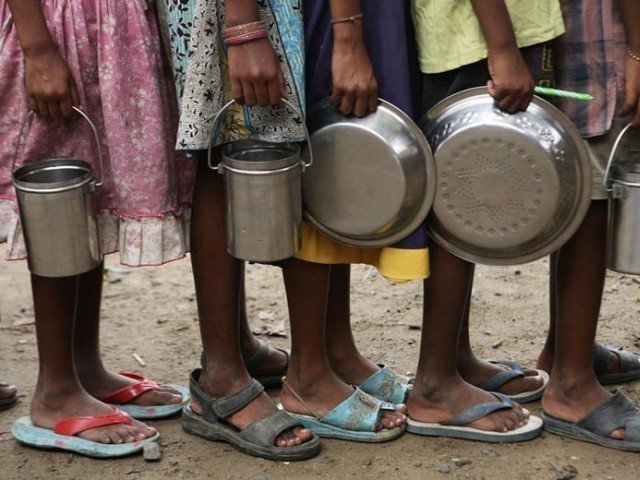ISLAMABAD: Increased cost of fuel, and energy along with the devaluation of local currency has resulted in a 27.26% rise in inflation during August as compared to the same month of last year, taking it to a historic high of 47 years, data released by the Pakistan Bureau of Statistics (PBS) showed on Thursday.
The inflation measured by the Consumer Price Index (CPI) in August on a year-on-year (YoY) basis was the highest fiscal year since 1974-1975. The CPI based inflation was registered at 8.4% in August 2021.
Pakistan had earlier recorded the highest inflation of 26.66% in 1974 when there was a global oil crisis. The index has since mostly remained below 15pc with a few exceptions in November 2008, when the CPI was recorded at 24.3% and then 24.93% in July 2022 on a YoY basis.
The average inflation between July and August increased by 26.10% this year against 8.38% over the same period last year.
The spike comes as fuel prices began rising in the last week of May after the new coalition government scrapped costly fuel subsidies in an attempt to tame the surging fiscal deficit and revive the stalled International Monetary Fund (IMF) loan programme.
On a YoY basis, the transport index saw the biggest rise of 63.08% in the month under review, followed by perishable food items that increased by 33.85%, non-perishable food items by 28.85%, housing and utilities 27.57%, restaurants and hotels 27.43%, alcoholic beverages and tobacco 25.78%, and furniture and household equipment maintenance by 21.86%.
In other categories, clothing and footwear saw an increase of 21.86% in prices, recreation and culture 21.78%, health 11.89%, education 9.99% and restaurants and hotels 7.41%.
Official data shows that food inflation remained on the higher side in August, as it shot up by 28.8% YoY and 1.6% MoM in urban areas, whereas the respective growth in prices in rural areas was 30.2% and 1.2% — a reversal of the trend wherein urban areas usually experience higher food prices.
Non-food inflation in urban centers increased to 24.7% YoY and 3.3% MoM, whereas in rural areas it rose to 27.5% and 3.1%, respectively. The increase in non-food inflation was mainly driven by unprecedented rising oil prices.
The core inflation in urban areas was 13.8% in August against 12% the previous month. In rural areas, the increase was 16.5% against 14.6%. This shows that the increase in interest rates has not been able to stop the upward trend in core inflation.
On a month-on-month basis, CPI-based inflation increased by 2.4% in August 2022 as compared to 4.3% in the previous month.
The country has been struggling with high inflation for the last few months. Despite rising global oil prices, ex-prime minister Imran Khan went ahead with fuel and power subsidies in March as he faced mounting discontent over his handling of the economy and inflation.
Rising inflation has emerged as a key concern for Pakistan’s economy, already in the midst of depleting foreign exchange reserves. Experts have warned that the country will see prices of food items rise further in the wake of ongoing flash floods that have caused at least 1,100 casualties, widespread destruction, and displaced millions of people.
Pakistan, which was already in the grip of high inflation, has witnessed catastrophic monsoon floods this season that have caused widespread destruction and sent food prices soaring, putting many staples out of the reach of the poor. The floods have submerged a third of the country, killing more than 1,100 people and affecting over 33 million.
The rains which began in June, and whose unusual intensity has been blamed on climate change, have also damaged vast swathes of rich agricultural land and crops. Parts of the mountainous north and bread basket south have been cut off as roads and bridges have been washed away. With millions of acres of farmland still under water and certain roads inaccessible, prices are expected to climb further.




